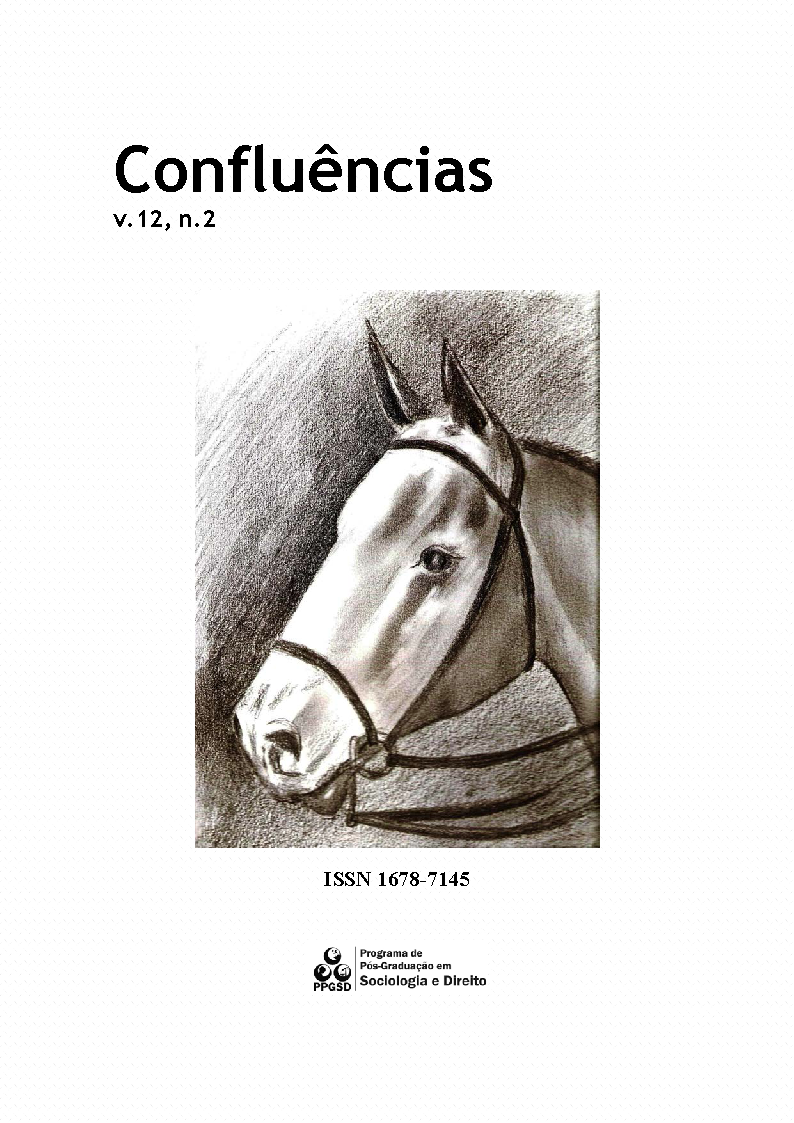Celeridade ou Justiça? Análise empírica de um Juizado Especial Criminal
DOI:
https://doi.org/10.22409/conflu12i2.p124Keywords:
Access to justice, juizados especiais criminais, celerity versus justiceAbstract
There are many discussions regarding access to justice, about the “Juizados Especiais”. Some consider them the main innovation in the Brazilian civil procedure in recent times, others consider them a kind of “justice of proximity” able to bring citizens closer to the management of conflicts done by the state. It is also possible to find a reading of these courts that highlights a serious risk posed by these judicial policies: that they can be exchanging “access to justice” for “access to peace”, compromising the analysis of the merits on behalf of promptness. The question becomes even more urgent and serious when we talk about the “Juizados Especiais Criminais”, where there are criminal claims. This work is the result of a Guided Group Study carried out under FGV DIREITO RIO, which involved students in an undergraduate research project, and which was awarded the first place in a contest. The survey sought to test the hypothesis of the existence of a paradox between justice and velocity in the decisions of the “Juizados Especiais Criminais”, (JECrim) to analyze if the concern for justice was being compromised in order to obtain faster decisions. If this is true, even if more processes are finished in the name of supposed efficiency, this "effectiveness" of JECrims would be illusory. The project initially worked with two hypotheses: first, justice understood as conventional, where slow processes prevail, given on the one hand complex procedures, and on the other a growing demand for adjudication, because the Courts have established themselves as a space receipt of claims that did not come before the judiciary. This, combined with an increase in the attention being paid to the judiciary, resulted in a clogging of the justice system, which became unable to respond swiftly to any demands that reach it. As a second hypothesis, there is the priority given to speed at the expense of analysis of the merits - and therefore concerns about justice. As a third one, we studied the “network model”, proposed in one of the studies that based our research, and that inserted these courts in a more comprehensive understanding of conflicts, as it will be described further in this article. The first stage of the research consisted of the reading of texts that discussed the classic problems of access to justice, examining issues related to JECs and JECrims. This not only helped us build a theoretical framework in which to insert the discussion but also helped us to define the research problem and hypotheses to be tested. The next step was to select a field of analysis. For this, the research team gained access to the IV Special Criminal Court of the State of Rio de Janeiro, having interviewed many important people in their dynamics, such as the judge, the prosecutor, and the public defender assigned there, as well as workers and users of the justice system in the JECrim: plaintiffs, a defendant and witnesses in various processes. In the end, the research found a fourth model, not previously discussed, which traditionally seeks to overcome the slowness observed in the judiciary, but, unlike what was our second model, the main priority is not speed, but the attention to a form of dispute resolution that could be called a comprehensive approach to conflict. In this approach, the priority is not a fast decision, but a decision that actually brings a real solution to the conflicts brought to JECrim, ie, that can bring social peace, a consensus between the parties. The actual ending of the litigation is more important than simply a binding decision, because these special courts often receive conflicts that occur between family members, neighbors and people who have permanent relations, and a decision in such cases, more than timely, must be concerned not the worsen the issues. Thus, the Fourth Special Criminal Court of the State of Rio de Janeiro (the JECrim we use as a research field), found a way to resolve conflicts quickly without leaving justice or peace
aside.
Downloads
References
CAPPELLETTI, Mauro. GARTH, Bryant. Acesso à Justiça. Sergio Antonio Porto Alegre, Fabris
Editor, 2002.
ECONOMIDES, Kim. “Lendo as ondas do “Movimento de Acesso à Justiça: epistemologia versus
metodologia”? in: D.C. Pandolfi, J.M Carvalho; L.P. Carneiro, e M. Grynnszpan, Cidadania, Justiça e
Violência, Rio de Janeiro, FGV, 1999.
FARIA, José Eduardo. “Estado, sociedade e direito”. In KUNTZ, Rolf e FARIA, José Eduardo. Qual
o futuro dos direitos? Estado, mercado e justiça na reestruturação capitalista. São Paulo, Max
Limonad, 2002.
FERRAZ, Leslie Shérida. A efetividade dos Juizados Especiais Cíveis: uma análise empírica. In:
CUNHA, José Ricardo (org.). Poder Judiciário: Novos olhares sobre gestão e jurisdição. Rio de
Janeiro: Ed. FGV, 2010.
KANT DE LIMA, Roberto; AMORIM, Maria Stella de; BURGOS, Marcelo Baumann. “A
administração da violência cotidiana no Brasil: a experiência dos Juizados Especiais Criminais”. In: R.
Kant de Lima, Roberto; M.S. Amorim; M.B Burgos, Juizados Especiais Criminais, Sistema Judicial e
Sociedade no Brasil: ensaios interdisciplinares, Niterói, Intertexto, 2003.
SOUZA SANTOS, Boaventura de. Pela mão de Alice: O social e o político na pósmodernidade. 11.ed.
São Paulo: Ed. Cortez, 2006.







